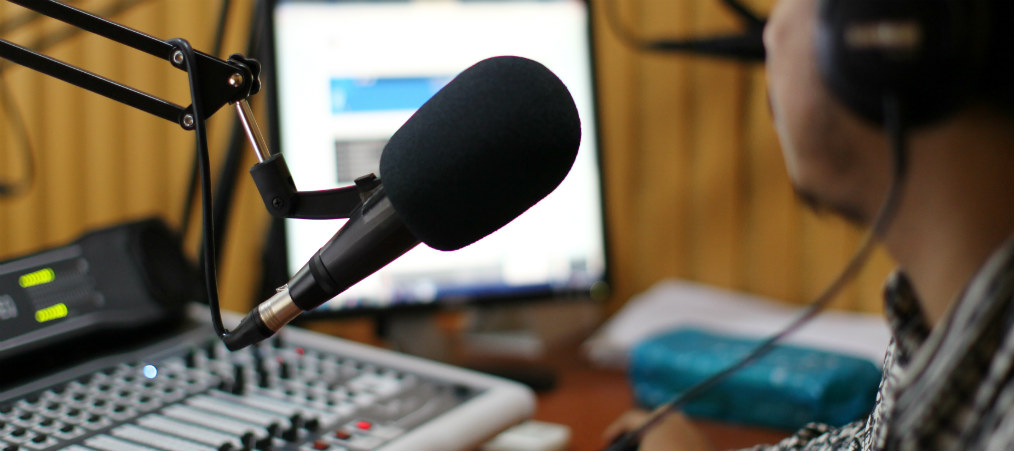Nearly three years ago, on 15 January 2015, the Indonesian Community Radio Network (JRKI) with 17 confederation members from 17 provinces in Indonesia launched the Movement of Community Radio for Clean Indonesia in Yogyakarta.
The movement has three purposes. First, to make community radio the educational media on anticorruption movement in Indonesia. Second, to expand public support for anticorruption movement to make the country clean and with dignity. Three, to ensure community radio’s role in the fight against corruption.
As a pillar of democracy, community radio has a strategic broadcasting role. It must not be trapped in the political or business current, but instead return to its goal to educate and enlighten the masses. In the anticorruption context, community radio is compelled to take part in the movement.
Article 21(2) of Law No. 32/2002 on Broadcasting states that community radio is established to “educate and put the society forward to achieve welfare by creating cultural, educational and informative programs that portray the nation’s identity.” As the reach is limited, community radio positions itself as community media that entertains, educates and informs local people. Each community radio has its own pattern and material, depending on the community needs. Some programs focus on agriculture, tourism and climate change, while others emphasize on labor issue, disaster mitigation, village development, and so on. The focus is formulated collectively and manifested in broadcasting programs. As of today, 450 community radio stations in 23 provinces are member of JRKI.
Anticorruption Movement
The society believes that public welfare and the nation’s progress are hampered by corruption. Corruption has become tradition not only among high-level public officials, but also among laymen. It is a common practice in developing village road, for example, to mark up the cost. Villagers know it is a type of corruption, but they opt for silence.
Anticorruption movement has grown at local, provincial and national levels. Many activists campaign against corruption, but the movement does not reach their own community. Not many people dare to be outspoken about corruption. Why is that? JRKI believes it has something to do with information access. This is where community radio plays important role.
Community radio must serve its function for the community as anticorruption education media. Therefore, JRKI held various activities in the regions with Radio KanalKPK managed by the Corruption Eradication Commission (KPK) to improve the ability and knowledge of community radio management in producing anticorruption messages.
Members of JRKI provide time slots for anticorruption messages, whether produced by KPK, JRKI, NGOs, or the radio stations. The creativity level is endless in producing regular public service announcement (PSA) and other forms of anticorruption messages. PPK FM community radio in Sragi Subdistrict in Pekalongan, Central Java, for example, tapped mothers who run savings fund to create anticorruption pledge and read it before the villagers.
Community radio also held dialog on village governance. Villages manage quite a number of fund but people are not aware of it because they have no access to such information. Villagers in Boyolali, Central Java, for instance, was shocked to find from MMC FM Community Radio that their village managed about Rp800 million fund. Meanwhile, villagers in Sepulung Air Kubu Raya, West Kalimantan, only found out about how village apparatus had not received their salary for five months from local community radio. The problem was caused by delayed transfer of the Village Fund Allocation from the regency.
Community radio can become the starting point of transparency and accountability. It can convey regulations and phrases related to corruption that the public is not yet familiar with. Phrases like gratuity, extortion and money laundering can be described together by anticorruption activists.
Anticorruption education also starts from within. Mitra FM Community Radio in Deli Serdang, North Sumatra, put their finances detail on big board and report them to the public on air. Listeners know how much money they have, along with the sources and allocations.
But community radio is here to entertain while still educating the masses. Bandung Bondowoso Community Radio in Klaten, Central Java always plays the song by gamelan (traditional music) maestro Ki Tjokrowarsito (KPH Notoprojo) from Puro Pakualaman Gamelan Group every day. Entitled “Kuwi Opo Kuwi”, the song conveys anticorruption messages that the radio station also performs the song live with their own traditional choir. They explain the meaning of the song and the way it affects the society.
By: Sinam M Sutarno
Head of the Indonesian Community Radio Network (JRKI)
Articles in the Voice of the People section are personal opinion and analysis of the author. They do not represent the view of the Corruption Eradication Commission (KPK).


